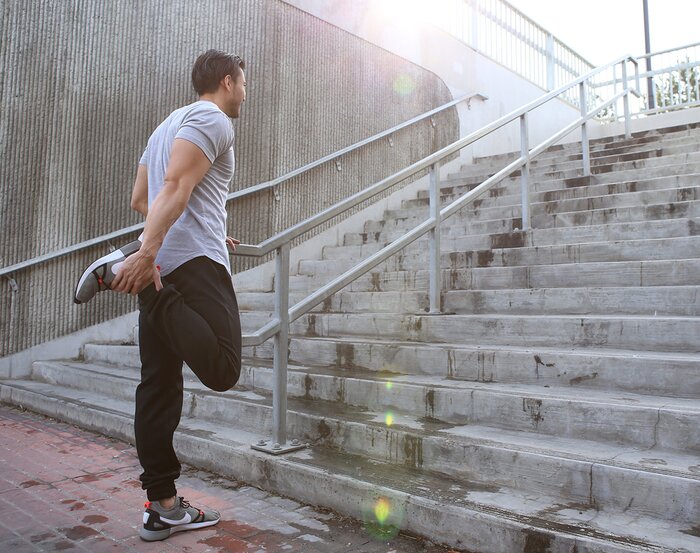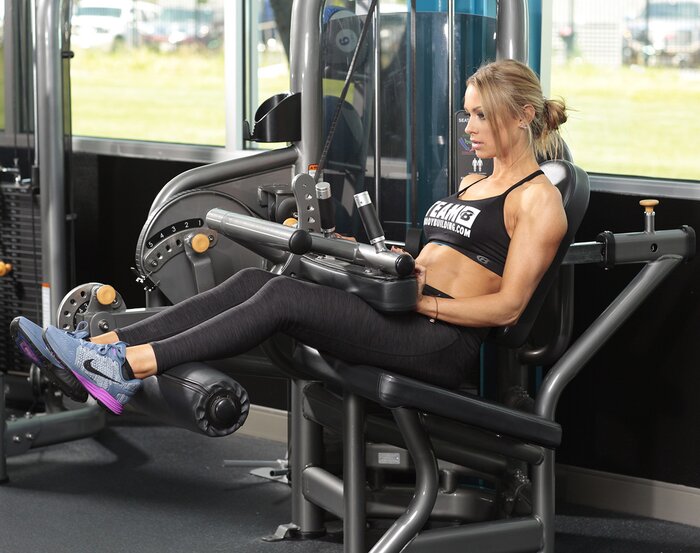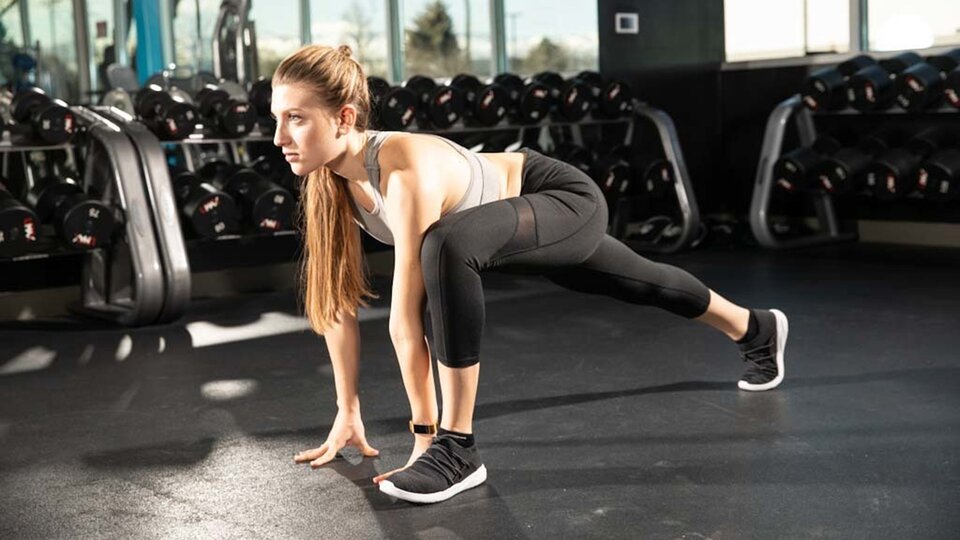Products You May Like
Post-Workout Window | Rest Between Workouts | Active Recovery | Rest Between Sets
“Train hard, recover hard” has been around for a long time, but the concept of recovery itself—and which approach is best—has changed considerably over the years.
When I first started training, if you crushed it in the gym, it was assumed that you’d want to take a full day—or two—off to recover. Nowadays, though, sitting on your butt for 24-48 hours after a session is considered less than ideal.
Which begs the question: If 48 hours of recovery isn’t ideal, what is? The answer: active recovery.
What is Active Recovery?
There are two basic types of recovery between training sessions: Passive recovery, which is doing nothing and letting your body take its time to recover, and active recovery, engaging in physical activity to promote recovery and regeneration.
What Are the Benefits of Active Recovery?
Decreased Stiffness and Soreness
You’re going to be sore after a heavy training session, and the longer you sit around, the worse it seems to become. Getting up and moving around the day after a heavy workout improves blood flow and circulation, which helps reduce that post-workout stiffness and soreness.
Improved Mobility
One disadvantage of getting bigger and stronger is that you can (potentially) lose some of your mobility and athleticism along the way. Using active recovery helps offset this. Not only will it help us feel better, but, if we choose the appropriate exercises, it can improve our overall movement quality, as well.
Improved Overall Fitness
Aerobic training facilitates recovery on the muscular level as well as the nervous system level. There’s a link between the aerobic system and the parasympathetic nervous system—think rest and digest—so if you want to stimulate recovery, add aerobic exercise to your active-recovery sessions.

Support healthy muscle recovery after every workout, so you can get back to your grind tomorrow.
How to Create an Active Recovery Workout
While there are tons of ways to rationalize what constitutes a ”recovery workout,” here are four guidelines I use to help lay out my sessions:
1. Choose Non-Taxing and Light Weight
Strength expert Dan John is famous for saying, ”The goal is to keep the goal the goal.” That may sound simple, but in this case, it needs to be stated. If the goal of a session is active recovery, it doesn’t make sense to trash yourself during the session.
Any active recovery workout must be of limited intensity to be effective. This means choosing light weights, body weight, or even band resistance. Focus on fluid exercises like dragging a sled or pushing a prowler. Make it a goal to find ways to decrease the load. If it feels fluid and relaxed, you’ll be on the right path.
2. Use Multijoint Exercises and Full Range of Motion
Recovery isn’t the time to use short, choppy exercises like hip thrusts, deadlifts, or kettlebell swings. Nor is it the time to isolate every single muscle group. Instead, think compound exercises with larger ROMs—like squats, lunges, and push-up variations.
Bigger movements not only promote blood flow and circulation, they also reduce muscle stiffness and soreness and restore mobility for the next training session.
3. Train Key Muscle Groups and Inhibit Problematic Ones
Some muscle groups are just harder to turn on than others, so why not dedicate some time to them in your recovery sessions? Make glutes, hamstrings, abs, and even smaller muscles like serratus anterior the focus. When you do this, you also inhibit—and relax—some of your more problematic muscle groups, such as the lower back, hip flexors, and calves. Inhibiting those tight, stiff muscles can go a long way toward helping you move and feel better.

4. Increase Blood Flow and Circulation
The primary goal of recovery is to increase blood flow and circulation, so choose exercises that promote this. You’re not trying to crush yourself with high-intensity intervals. Instead, keep things moving throughout the session. If you have to rest longer than 20-30 seconds after an exercise, you’re going too hard.
Get unbelievable pumps and increased blood flow to your muscles!*
Do I Have to Lift, Or Can I Just Do Cardio?
No, you don’t have to lift. I prefer these exercises because they improve your movement capacity and are less monotonous than cardio. However, maybe you want to shut off your brain and listen to a podcast. If that’s the case, make it easy on yourself and just do cardio.
Can I Just Do a Bunch of Mobility Drills Instead?
Yes! Mobility work is one of my favorite tools, especially for some of my athletes who don’t have great gym access or simply want some time off from the gym. Choose 8-10 of your favorite warm-up exercises or mobility drills and go through them continuously for 20-30 minutes.
